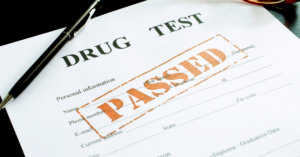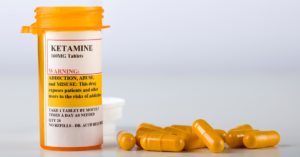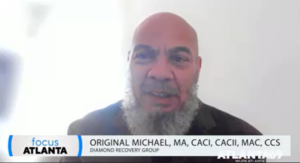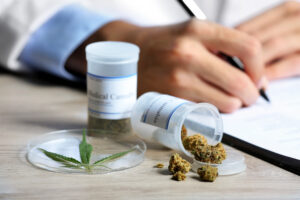Addiction Help for Compulsive Behaviors
When most people think of addiction, their minds turn to drugs or alcohol. But, the truth is that addictive behaviors are hardly limited to substance use disorders. What if you need addiction help due to a gambling problem or working out excessively, for example?
Addictions that fall outside of the realm of substance use can cause just as much havoc and heartache in a person’s life. However, these issues often seem to get less attention than drug and alcohol problems do. It’s also not always easy to know where to go for help for addiction when drugs or alcohol aren’t the problem.\
These compulsive behaviors which are fixed on something other than a substance are known as process addictions. This article from Diamond Recovery explains process addictions and how to find help and support for them.
What Are Process Addictions?
Process addictions, also known as behavioral addictions, are compulsions to continually engage in behaviors despite their negative impact on one’s health and well-being. It is these negative impacts that usually drive people to seek addiction help in the case of substance use disorders, but people living with process addictions are sometimes unaware that there is addiction help available for them as well.
Unlike substance addictions that involve physical substances, process addictions revolve around certain actions or behaviors. Examples include excessive internet use, compulsive shopping, workaholism, and gambling.
At Diamond Recovery, we believe that raising awareness about process addictions and compulsive behaviors is essential. The better these conditions are understood, the more likely people are to find the support and addiction help they deserve. People with process addictions frequently endure the same challenges as people with substance use disorders.
Knowing When Addiction Help is Needed for Compulsive Behavior
Early detection of a process addiction can significantly increase the chances that addiction help will be effective. Being able to recognize the signs of problematic compulsive behavior is one reason why raising awareness about process addictions is so important.
Watch out for signs such as spending an excessive amount of time on the behavior, failed attempts to stop the behavior, and experiencing withdrawal symptoms when the behavior is stopped or reduced. These symptoms can vary depending on the type of process addiction. The one constant however is that the behavior is tough (even seemingly impossible) to stop, in spite of the consequences.
Ask yourself:
- Is this behavior causing stress or strain in my personal relationships?
- Have I attempted to stop this behavior unsuccessfully? More than once?
- Am I often neglecting other important responsibilities to make time for this behavior?
- Have I experienced financial problems or gone without things to enable this behavior?
Only a mental health professional can formally diagnose a process addiction. But, if you answered “yes” to one or more of the questions above, then it is worth talking to a professional about addiction help for compulsive behavior.
6 Facts About Process Addictions
- Process addictions are behavioral addictions – They involve compulsions to continually engage in certain behaviors despite their negative consequences. Unlike substance addiction, which involves a physical dependency on a specific substance, process addiction revolves around certain actions or behaviors.
- They can be just as damaging as substance addictions – Although they don’t involve physical substances like drugs and alcohol, process addictions can still have severe impacts on an individual’s life, affecting their health, relationships, and overall well-being.
- Process addictions can involve psychological withdrawal – Unlike some substance use disorders, process addictions don’t lead to physical withdrawal symptoms. But, people often experience psychological withdrawal symptoms such as anxiety, restlessness, and irritability when they try to stop the behavior.
- A wide range of behaviors can eventually require addiction help – The list of behaviors that can become process addictions is long. It grows a bit longer every year as we learn more about this condition. Some of the most common examples include gambling, excessive gaming, exercise addictions, and compulsive shopping.
- Process addictions are more than just bad habits – There is a critical difference between a simple vice or bad habit and a process addiction. Bad habits can be broken with self-discipline and willpower, they don’t require addiction help to vanquish. Whereas overcoming process addictions often requires professional addiction help to overcome.
- Process addictions are not a choice – Like substance use disorders, process addictions are not a simple matter of choice or lack of willpower. They are complex disorders that require understanding, treatment, and support for recovery. This is an essential point to understand, both for the person with process addiction and anyone who wants to support them.
Addiction Help for Compulsions and Process Addictions
Awareness is the key here. We hope you found this article informative and helpful. If you have recognized the signs of process addiction in yourself or someone you care about, know that help is available. The best place to start is usually an evaluation by a mental health professional which may lead to a diagnosis. From there, a treatment plan can be developed.
Both outpatient and inpatient mental health treatment are available, as well as support groups for people with process addictions as well as their loved ones. The National Alliance on Mental Illness (NAMI) is also an excellent, non-profit resource for information and support that is worth checking into. There is hope and life after process addiction. You or your loved one do not have to be held hostage by compulsive behaviors, it just takes the courage and willingness to reach out for help.
Diamond Recovery is Raising Awareness
At Diamond Recovery we feel it is our responsibility to not only provide world-class treatment for substance use disorders and co-occurring conditions– but to raise awareness. Helping people with substance use and mental health disorders become more visible and better understood is an essential part of the healing process, both for them and society as a whole.
If you or someone you care about could benefit from mental health treatment for a co-occurring condition or a substance use disorder or you just have questions about Diamond Recovery and what we do, please give us a call at (844) 909-2525.







